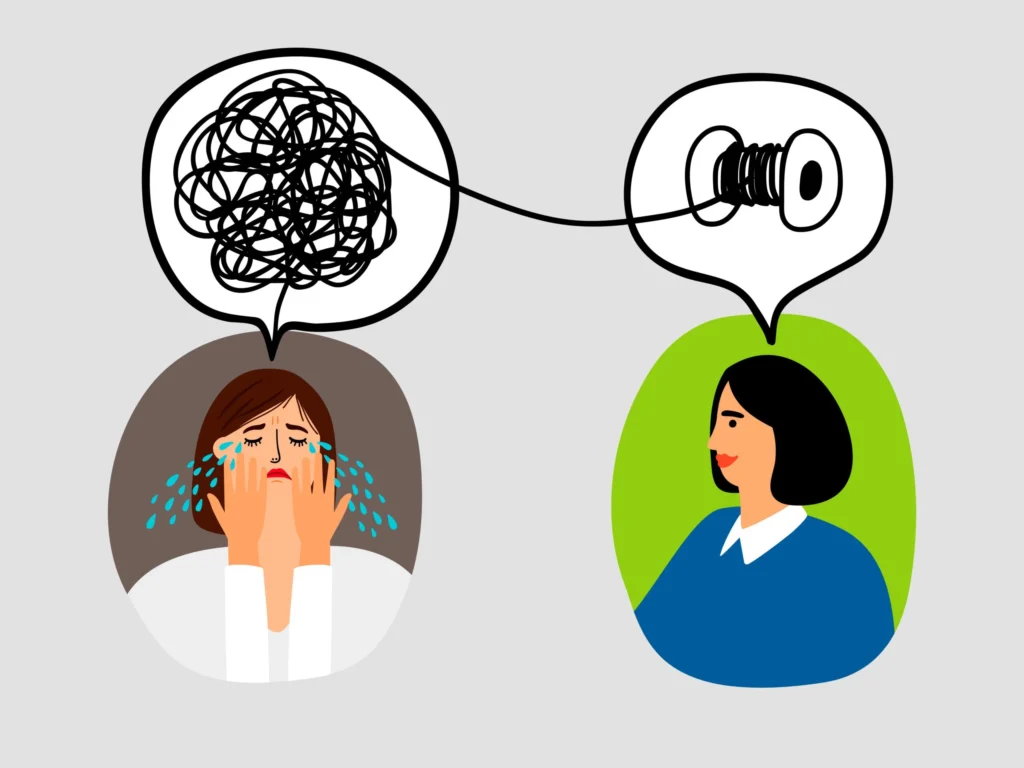The Importance of Therapy
We all go through tough times in life, and sometimes, we need a helping hand to guide us through our struggles. Therapy is a powerful tool that can help us navigate through our emotions and develop effective coping strategies. In this article, we’ll explore the different types of therapy, their benefits, and how to choose the right therapist for you.

Different Types of Therapy
There is a wide range of therapy types that cater to various needs and preferences. Let’s dive into some of the most common ones:
Cognitive Behavioral Therapy (CBT)
CBT is a short-term, goal-oriented therapy that focuses on identifying and changing negative thought patterns and behaviors. It’s commonly used to treat anxiety, depression, and other mental health conditions.
Dialectical Behavior Therapy (DBT)
DBT, a form of CBT, emphasizes the development of emotional regulation skills, interpersonal effectiveness, and mindfulness. It’s particularly useful for individuals with borderline personality disorder, eating disorders, or those experiencing self-harm tendencies.
Psychodynamic Therapy
Psychodynamic therapy explores the unconscious mind to understand how past experiences and relationships impact current behaviors and emotions. This approach is often employed to treat depression, anxiety, and trauma-related issues.
Humanistic Therapy
Humanistic therapy focuses on personal growth, self-actualization, and the inherent worth of each individual. Therapists who practice this approach, such as person-centered or Gestalt therapists, aim to create a safe and supportive environment for clients to explore their feelings and experiences.
Family Therapy
Family therapy is an approach that helps families address conflicts, communication issues, and other problems within the family system. This type of therapy is beneficial for dealing with parenting challenges, grief, and addiction.
Group Therapy
Group therapy brings together individuals who share similar struggles, allowing them to offer support and learn from one another. It’s an effective method for addressing substance abuse, grief, and social anxiety.
Benefits of Therapy
Therapy provides numerous benefits to those who participate. Let’s explore some of these advantages:
Mental Health Improvement
Therapy can help alleviate symptoms of depression, anxiety, and other mental health issues by providing strategies to cope with negative thoughts and emotions.
Relationship Building
Through therapy, individuals can develop healthier communication patterns and learn how to navigate conflicts more effectively, leading to stronger relationships with friends, family, and partners.
Personal Growth
Engaging in therapy can help individuals increase self-awareness, set personal goals, and develop a stronger sense of self.
Coping Skills Development
Therapy assists individuals in acquiring healthy coping mechanisms to manage stress, adversity, and other challenges they may face in life.

How to Choose the Right Therapist
Finding the right therapist is crucial for a successful therapeutic experience. Here are some factors to consider when making your choice:
Credentials and Experience
Ensure the therapist is licensed and has experience in treating your specific concerns. Check their background, education, and areas of specialization.
Personal Connection
A strong therapeutic relationship is essential for progress. Look for a therapist you feel comfortable with, and trust your intuition when making a decision.
Practical Considerations
Consider factors such as location, scheduling availability, and whether the therapist accepts your insurance or offers a sliding scale fee structure.
Conclusion
Therapy is a valuable resource for those seeking to improve their mental health, build stronger relationships, and achieve personal growth. By understanding the different types of therapy available and carefully selecting the right therapist, you can embark on a journey of self-discovery and healing.
FAQs
- Is therapy only for people with mental health issues?
No, therapy can benefit anyone looking to improve their emotional well-being, navigate life changes, or enhance personal growth.
- How long does therapy usually last?
The duration of therapy varies depending on individual needs and goals. Some clients may see results in a few sessions, while others may require long-term support.
- Is online therapy as effective as in-person therapy?
Research suggests that online therapy can be just as effective as in-person therapy for many issues. However, personal preferences and the nature of the concern may determine which format is best for you.
- How can I determine if therapy is working?
Signs of progress may include a decrease in symptoms, improved relationships, and increased self-awareness. Open communication with your therapist can also help you assess your progress.
- Is everything I share in therapy confidential?
In general, the information you share with your therapist is confidential. However, there are some exceptions, such as when there is a risk of harm to yourself or others, or when mandated by law.





Leave a Reply